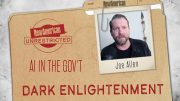Conservatives say the giant-social media companies censor their views. Liberals say those claims are a right-wing hoax.
Whoever is right, Facebook’s stock tanked on Wednesday, as The New American reported, while Twitter’s nosedived in early in July after it purged millions of fake accounts.
Someone somewhere seems to be listening if the latest reversal of a very big “mistake” — a shutdown of mainstream Republicans in Twitter searches — is any indication.
Twitter Reverses Course
VICE News readers saw this updated headline appended to a lengthy piece on Wednesday: “Twitter appears to have fixed ‘shadow ban’ of prominent Republicans like the RNC chair and Trump Jr.’s spokesman.”
It followed on Thursday with a full article on the reversal, which reported that Twitter “appears to have adjusted its platform overnight to no longer limit the visibility of some prominent Republicans in its search results, a problem that the company said was a side effect of its attempts to clean up discourse on its platform.”
On Wednesday, VICE reported that Twitter was “limiting visibility of prominent Republicans in search results — a technique known as ‘shadow banning’ — in what it says is a side effect of its attempts to improve the quality of discourse on the platform.”
The Republican Party chair Ronna McDaniel, several conservative Republican congressmen, and Donald Trump Jr.’s spokesman no longer appear in the auto-populated drop-down search box on Twitter, VICE News has learned. It’s a shift that diminishes their reach on the platform — and it’s the same one being deployed against prominent racists to limit their visibility. The profiles continue to appear when conducting a full search, but not in the more convenient and visible drop-down bar. (The accounts appear to also populate if you already follow the person.)
Democrats are not being “shadow banned” in the same way, according to a VICE News review.
Understandably, Republicans were not amused. McDaniel told VICE News that Twitter “owes the public answers,” and that suppressing “certain political points of view should concern every American.”
Twitter claimed the shadow-banning occured not because of content but because of “behavior.” Twitter was trying to stop trolls, it said.
Instead, VICE reported, the dragnet was cast so wide it “ensnared some of the most prominent Republicans in the country. Type in the names of McDaniel, conservative members of Congress like Reps. Mark Meadows, Jim Jordan, and Matt Gaetz, and Trump Jr.’s spokesman Andrew Surabian, for example, and Twitter’s drop-down search bar does not show their profiles.”
The banning, of course, harms the conservative effort to publicize its message on Twitter, VICE noted:
Conservatives in and out of Congress have been claiming for months — with varying amounts of evidence — that Big Tech companies are censoring voices on the right. The Republican-led House Judiciary Committee convened not one but two hearings on the subject in recent months, including one with pro-Trump social media stars Diamond and Silk, who argued that Facebook had been intentionally diminishing the reach of their content. The second hearing went down just last week where representatives from Twitter, Google, and Facebook were subjected to grilling by conservatives.
Democrats, for their part, have largely rolled their eyes at conservative claims of discrimination. At Diamond and Silk’s hearing in April, the committee’s top-ranking Democrat Jerrold Nadler called the idea of Big Tech censorship of conservatives a “hoax” and a “tired narrative of imagined victimhood” that was eclipsing other priorities like election security and online privacy.
YouTube vs. Infowars
Meanwhile, the Verge reported, YouTube has blocked four videos from Alex Jones’s Infowars because they “contained instances of hate speech and child endangerment”:
Two videos contained hate speech against Muslims, and a third contained hate speech against transgender people, sources said. A fourth showed a child who was pushed to the ground by an adult man, under the headline “How to prevent liberalism.” All four of the videos are currently posted on Infowars.
The blocking is called a “strike.” Three strikes in three months invite an account deletion.
The Verge didn’t divulge or link to the full content of the videos.
“How to prevent liberalism,” for instance, did indeed depict a man shoving a boy to the ground. But the man acted after the boy repeatedly accosted him, and according to the explanation on the Infowars Facebook page, “concerned citizens complained to the store owner that the kid was caught keying cars in the parking lot.”
The Verge also alleged that “Jones’ channel previously received a strike from YouTube in February after it promoted the false theory that survivors of the Parkland shooting were actually trained ‘crisis actors.’”
But Infowars argued that it never called the students “crisis actors.”
“The key word here is CRISIS,” Kelen McBreen wrote at Infowars to answer a claim from CNN:
The majority of the Parkland students who were all over mainstream media pushing gun control following the attack were literal actors and actresses who were in the school’s drama club.
The New Yorker reported in February, “The activists are grieving, too, but it’s not a coincidence that a disproportionate number of the Never Again leaders are dedicated members of the drama club.”
To verify that Jones published “hate speech against Muslims” and the other claims, a reader or viewer would have to find and watch all four videos, something few are likely to do.
Therein lies a problem. Without easy access to everything social-media giants censor, viewers and readers can’t judge whether a post was fairly deleted.
CNN has been after Facebook to censor Infowars, as The New American has reported.
Photo: simonmayer/iStock Editorial/Getty Images Plus




